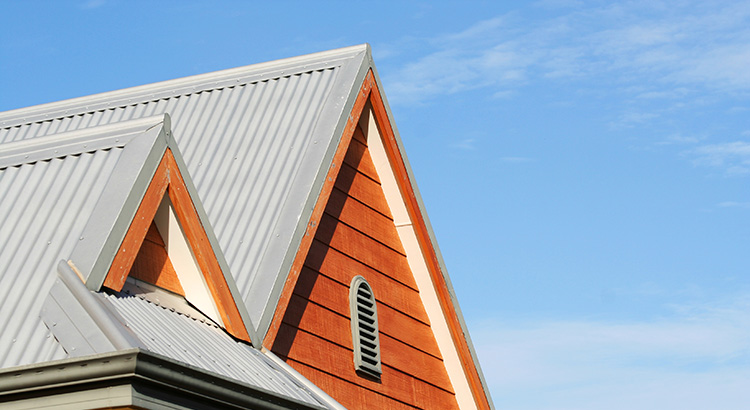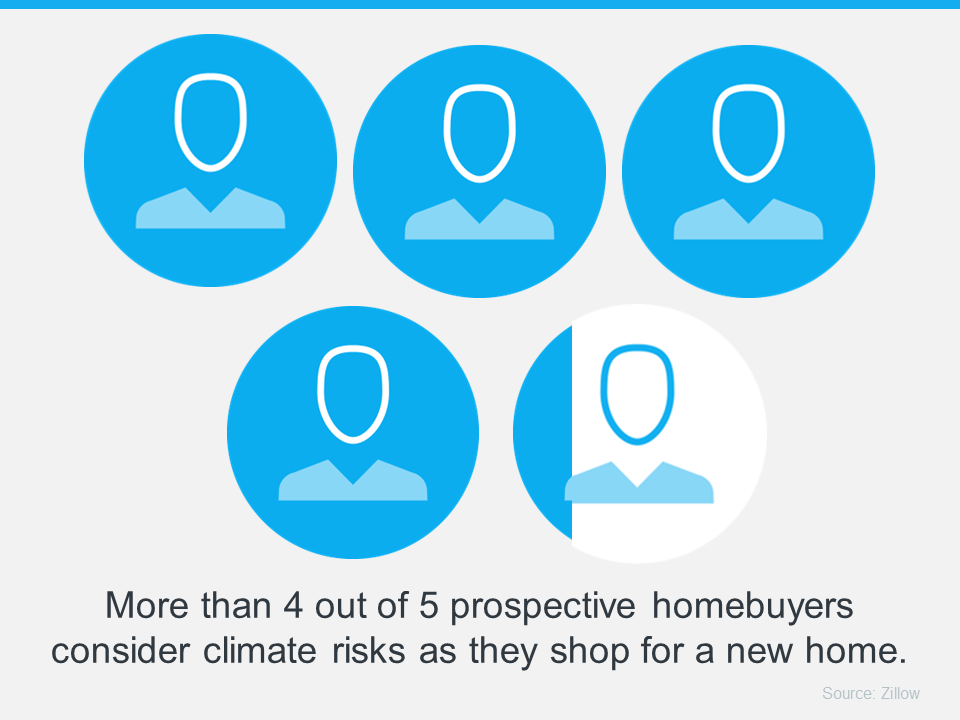
The increasing effects of natural disasters lead to new obstacles in residential real estate. As a recent article from CoreLogic explains:
“As the specter of climate change looms large, the world braces for unprecedented challenges. In the world of real estate, one of those challenges will be the effects of natural catastrophes on property portfolios, homeowners, and communities.”
That may be why, according to Zillow, more and more Americans now consider how climate risks and natural disasters can impact their homeownership plans (see below):
This study explains that climate risks affect where many people look for a home. Homebuyers are interested in discovering if the house they want will be exposed to floods, extreme heat, and wildfires.
If you’re in the same situation and are thinking about what to do next. Then, here is some critical information to consider as you start looking for a home.
Expert Advice for Homebuyers To Reduce Climate Risks
The first thing to do is understand how to buy a home while considering climate risks. With the right help and resources, you can simplify the process.
The Mortgage Reports provides these tips for buying your next home:
- Evaluate climate risks: Before purchasing a home, it’s essential to check if it’s in a flood-prone area using the FEMA website, review the seller’s property disclosure for any past damage, and get an inspection for issues like cracks and mold to make sure it’s a safe investment.
- Consider future preventative maintenance costs: For areas that get tropical storms, you may need to purchase hurricane shutters and sandbags to protect the home. In wildfire-prone areas, you may want to clear plants five feet from the home. Consider rooftop sprinklers or buy gutter guards to prevent fire hazards. Factor these future expenses in when touring homes that may need them.
- Take steps to avoid losing your assets: Getting the right insurance for a home in a high-risk climate area is crucial. Before bidding on a home, you should shop and talk to multiple insurance agents to compare prices and options.
Above all else, your most valuable resource during this process is a trusted real estate expert. I will always focus on your goals while keeping your concerns in mind. As an agent, I will connect you to industry experts to answer your natural disaster questions to provide you with the answers you are seeking.
New York Climate Risk Local Laws
New York’s green initiative plan is aimed to reduce greenhouse gases by 40% by 2030 and 80% by 2050. Buildings are in the process of devising their plan to adopt Local Laws 87 and 97.
- Local Law 11: The NYC Facade Inspection Safety Program (FISP), also known as Local Law 11, requires NYC buildings taller than six stories to inspect and repair their facades every five years. The law was recently enhanced to protect New Yorkers from falling debris after several deadly accidents.
- Local Law 87: Local Law 87 (LL87) mandates that buildings over 50,000 gross square feet undergo periodic energy audits and retro-commissioning measures as part of the Greener, Greater Buildings Plan (GGBP).
- Local Law 97: Under this groundbreaking law, most buildings over 25,000 square feet will be required to meet new energy efficiency and greenhouse gas emissions limits by 2024, with stricter limits coming into effect in 2030. The goal is to reduce the emissions produced by the city’s largest buildings by 40 percent by 2030 and 80 percent by 2050.
- Local Law 84: Many owners and potential purchasers are unaware that Local Law 84 has been in effect since 2009, requiring residential buildings with at least 25,000 square feet to submit an energy and water usage report in May every year.
Key Takeaway
If you want to buy a home but you’re also thinking about climate risks, you’re not alone. Your home is a significant investment; you want to know if anything can impact that. Let’s connect so you have someone you can trust to guide you as you find your next home.
Other educational articles about the market and your home search are under Karen’s Blog. Additionally, explore the search bar for other topics of interest.


